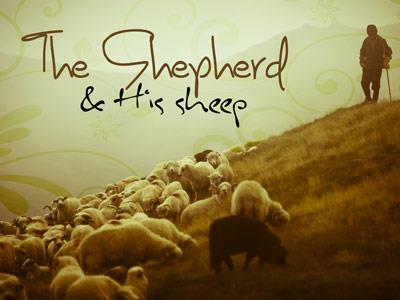-
Sheep, Wolves, Sheepdogs
Contributed by W Pat Cunningham on Apr 15, 2018 (message contributor)
Summary: We are not called to apply the superficial wisdom of American culture to reshape our Catholic identity. We are called to alert Americans to the wisdom of Catholic culture that is given to us by Our Lord.
Fourth Sunday of Easter 2018
The Good Shepherd
In a popular movie from a few years back, the main character, a gung-ho SEAL from Odessa, tells his listeners that there are three kinds of people: wolves, sheep, and sheepdogs. The wolves prey on the sheep, the sheep cower in fear, and the sheepdogs protect the sheep from the wolves. It’s an analogy that has caught on in American culture, especially in the debate over self-defense and public policy.
But we are not called to apply the superficial wisdom of American culture to reshape our Catholic identity. We are called to alert Americans to the wisdom of Catholic culture that is given to us by Our Lord. It is summarized in the words of St. John’s letter, three verses that are so brief they might have flown right over our heads: “Beloved, we are God's children now; it does not yet appear what we shall be, but we know that when he appears we shall be like him, for we shall see him as he is.” God, in His love, made man and woman in the family likeness of the Blessed Trinity. We turned our backs on that identity. But God, in His love, seeks to renew the human race by remaking us in the image of Jesus Christ. That is why Christ suffered, died and rose and sent the Holy Spirit, to redeem us and make us like Jesus, like Mary, perfectly attuned to the will of the Father.
In the Acts of the Apostles, we see, over and over, that the early members of the Church went to their Jewish brothers and sisters with a simple statement of God’s good news. They wanted to bring the synagogue and the temple to its fulfillment in Jesus Christ of Nazareth, who had transformed their lives and brought them to peace and unity. But they were working against a long historical narrative. The Jewish people of that day knew Jesus as a wonder worker, but one whom their own leaders had condemned as a traitor, a blasphemer, and had handed over to the Romans to crucify. The disciples had seen Him alive and in glory, and would never deny that, even under torture and death. But for most of the Jews it was news that was too unbelievable, too good. Nonetheless, the believers continued to spread the news, and it has diffused over all the world in every age, to us who are blessed in its presence, its truth, its goodness, its beauty. God’s steadfast love endures forever.
But there are wolves. The doctrine of Original Sin reminds us that there is a fallen-ness in each of us that, if it is not redeemed, can turn us into wolves. As wolves, we deny our call to be images of God and we prey on the sheep. That is, we fail to love God and to love our neighbor as ourselves. We know that people mired in sin suffer changes in their brain chemistry that makes it easier to commit the next sin. The really begin to believe that good is evil and evil is good. That’s why we work hard with our children to teach them the great twin commandment of love. And that’s why changing the law is a toothless way to change wolves into sheep.
Instead, let’s look at the Good Shepherd, Jesus Christ, who images the person we should be becoming. The Good Shepherd stays with the flock. They do not cower in fear because He is with them. He lays down His life so that they may live forever. And even when this life ends, the sheep are confident that they will live forever in His presence. The pledge of that promise is this Mass, and the Bread of Life and Cup of Blessing we share that brings us together in the one flock.
But, our practical mind says, what about Sutherland Springs, Columbine, Charleston, Parkland, London Bridge, Nice, France? What about the real terrorist wolves preying on sheep? We all have opinions on the short-term solution, if there is one. But there is only one real long-term solution. We need to solve the problem where it originates, in the hardness of the human heart.
Why is it that when we get upset, we don’t even think about taking a gun or a knife or a bomb and killing someone else? I don’t think it has anything to do with Texas law, or fear of being caught and punished. (I hope that’s not the reason.) I hope that the reason is that our hearts are beating so in time with the Sacred Heart of Jesus that we want only good for our neighbor, even the jerks of the world. The grace of Christ has changed our minds and hearts.

 Sermon Central
Sermon Central



